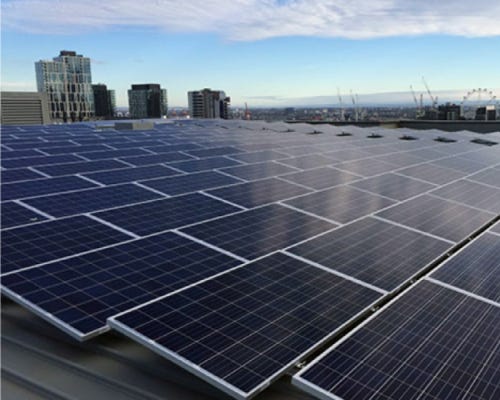Solar Heights: Rooftop Energy Revolution

Harnessing the Sun: Rooftop Solar Energy Revolution
The world is experiencing a rooftop revolution with the widespread adoption of Rooftop Solar Energy. This article delves into the transformative impact of solar technology on rooftops, paving the way for cleaner and more sustainable energy solutions.
The Rise of Solar Heights: Rooftop Solar’s Ascent
Rooftop Solar Energy has seen a remarkable rise, symbolizing a shift towards decentralized and sustainable power generation. With solar panels adorning rooftops, residential and commercial spaces are turning into energy producers, contributing to a more resilient and eco-friendly energy landscape.
Sun-Powered Innovations: Rooftop Solar Technology
Advancements in Rooftop Solar Energy technology have played a pivotal role in its widespread adoption. Solar panels have become more efficient, durable, and cost-effective, making them an attractive option for individuals and businesses alike. From traditional photovoltaic cells to innovative solar tiles, the options for harnessing solar energy on rooftops are diverse.
Green Rooftop Footprints: Environmental Impact
One of the most significant advantages of Rooftop Solar Energy is its positive environmental impact. By harnessing the sun’s energy directly on rooftops, individuals and businesses reduce their dependence on conventional energy sources, mitigating carbon emissions and contributing to a greener and more sustainable future.
Rooftop Solar Energy Link to Sustainability
Explore the sustainability journey with Rooftop Solar Energy, where each panel is a step towards a more sustainable future. This link between rooftops and solar technology empowers individuals to actively participate in the global effort to combat climate change and transition to renewable energy sources.
Energy Independence: Rooftop Solar for Homes
Rooftop Solar Energy brings the concept of energy independence to homes. Homeowners can generate their own electricity, reducing reliance on the grid and often having the opportunity to sell excess energy back to utility companies. It’s a transformative shift from being mere consumers to active contributors to the energy grid.
Commercial Rooftops Go Green: Business Sustainability
Businesses are increasingly embracing Rooftop Solar Energy as a cornerstone of their sustainability initiatives. Commercial rooftops offer ample space for solar installations, allowing businesses to reduce operating costs, enhance their green credentials, and contribute to a corporate culture centered around environmental responsibility.
Financial Incentives: Rooftop Solar and Cost Savings
The financial benefits of Rooftop Solar Energy extend beyond sustainability. Many regions offer financial incentives, tax credits, and rebates for installing solar panels. This makes the initial investment more accessible and provides a compelling financial case for adopting solar technology on rooftops.
Resilient Energy Infrastructure: Rooftop Solar’s Role in Power Resilience
Rooftop Solar Energy contributes to building a more resilient energy infrastructure. By decentralizing power generation, it reduces vulnerabilities to centralized grid failures. During power outages or emergencies, solar-powered homes and businesses equipped with battery storage can continue to function independently, ensuring a continuous power supply.
The Future of Rooftop Energy: Solar Innovations Ahead
As technology evolves, the future of Rooftop Solar Energy holds even more promise. Innovations like transparent solar panels and increased energy storage capacity will further integrate solar solutions into the fabric of our urban landscapes. Rooftops will not only be shelter but active contributors to the clean energy grid.
Conclusion: Solar Heights – Rooftops as Power Hubs
Rooftop Solar Energy represents a paradigm shift in the way we view and utilize rooftops. From being passive structures to becoming active contributors to our energy needs, rooftops are at the forefront of a clean energy revolution. As we embrace Solar Heights, the vision of a sustainable and sun-powered future is closer than ever, with every rooftop playing a vital role in the global energy transformation.




